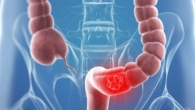
Myths about food: how harmful are instant noodles
1
Instant noodles are appreciated for the ability to cook quickly under any conditions – just pour boiling water over them. At the same time, it is considered that instant noodles are a very harmful dish, because they contain preservatives, dyes and monosodium glutamate. At the same time, some believe that instant noodles can replace regular pasta. Let's find out what is true and what is false in the myths about instant noodles. Let's find out how harmful instant noodles are and whether they are useful. Let's determine how to choose high-quality instant noodles.
Truth and errors in myths about instant noodles
Instant noodles contain harmful substances I substances
Partly true
A study of popular brands of instant noodles did not reveal pathogenic microorganisms and an increased content of heavy metals. But in some samples, traces of mycotoxins produced by mold fungi were found.
Sometimes there are traces of pesticides in the noodles. Although their level in one package, as a rule, does not exceed the maximum permissible values, some of them can accumulate in the human body.
Instant noodles were invented as a cheap substitute for ordinary noodles
Omana
Momofuku Ando, who invented instant noodles, tried to solve the problem of long queues for ordinary noodles in Japanese noodle shops with the help of his invention. Instant noodles were originally six times more expensive than traditional noodles.
What is harmful about instant noodles?
Instant noodles are a high-calorie dish. It contains a lot of fat and carbohydrates, but little vitamins, minerals and dietary fiber. In some countries, instant noodles are classified as junk food – high-calorie products with low nutritional value.
Instant noodles contain a lot of salt and fat at the same time. This combination adversely affects the health of the cardiovascular system.
A study conducted by Korean scientists found a link between the frequent consumption of instant noodles and the risk of developing metabolic syndrome. It turned out that young Koreans who eat more than three servings of instant noodles a week are more likely to be overweight. Blood pressure increases in women.
The combination of table salt and monosodium glutamate in instant noodles creates a risk of excess sodium. In moderate amounts, this trace element is necessary for the body, but its large amount provokes hypertension and increases the risk of stroke. The World Health Organization recommends limiting dietary sodium to 2 g per day, which is about 5 g of salt.
Instant noodles are made from wheat flour, which contains gluten. Some people suffer from the autoimmune disease celiac disease, which is caused by a genetic intolerance to this substance. The main method of treatment is complete rejection of any products containing gluten. Patients with celiac disease should not eat instant noodles.
Doctors recommend completely abandoning fried foods in case of gastritis and other diseases of the gastrointestinal tract. The ban also includes instant noodles, which are fried in oil at the factory.
Are there benefits to instant noodles?
Instant noodles are a high-calorie product, high in fat and carbohydrates, low in protein and fiber. The energy value of instant noodles is usually about 400 kcal per 100 g, sometimes higher.
The content of useful substances in instant noodles depends on the recipe. It usually contains some iron and calcium. Vitamins are usually very few.
Although instant noodles are not considered healthy food, they have certain advantages compared to other ready-made products. “Noodle soup can completely replace a carbohydrate meal, give the body fast carbohydrates, fats and a little fiber. Certainly, intake of liquid food, in contrast to “dry food”, has a positive effect on the mucous membrane of the gastrointestinal tract and on the body as a whole”, – says the nutritionist. At the same time, the doctor advises to abandon the powder with flavor additives, which is usually put in the package of noodles. Even so, it is better to eat instant noodles no more than once a week, the nutritionist warned.









Leave a Reply